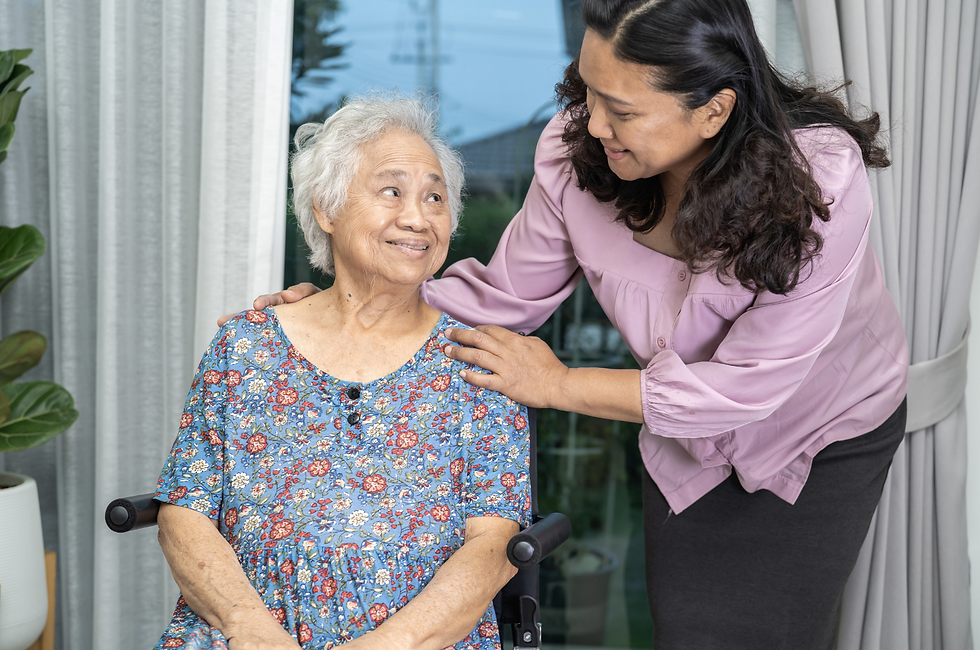How to Talk to Someone with Dementia
- Senior Support Services

- Jan 28, 2019
- 2 min read
Communication is such an important aspect of our lives. Knowing how to communicate best can help you and your loved one understand each other better.
1) Eye contact
o If your loved one is in a bed, a wheelchair or on the couch, make sure you get down to their level so that you are at their line of sight.
2) Limit any other distractions
o Ensure there is enough lighting in the room.
o Limit any background noises (TV, radio, ect).
o Aim for quiet and intimate interactions with fewer people.
3) Get their attention
o Call your loved one by name.
o Approach them gently from the front.
o Introduce yourself if required.
4) Speak slowly and clearly and repeat if needed
o Articulate your words.
o Allow a significant amount of time for your loved one to process what you’ve said.
o Emphasize the word that is the most important.
5) Use familiar vocabulary
o Use language that is familiar to your loved one.
6) Limit open-ended questions
o Try to create questions so that your loved one can answer “yes” or “no”.
o Or offer limited options to your question.
7) Pay close attention
o Observe how your loved one is responding to your words.
o Do they understand the information that is being said?
o What is their body language and facial expression telling you?
o What energy are they giving off?
8) One instruction at a time
o Break down information into simpler, smaller steps.
o Small tasks, rather than one big task is better.
9) Do not quiz
o Your loved one’s ability to make sense of things and use logic is affected by the disease.
o Quizzing may result in your loved one feeling anxious, uncomfortable, embarrassed and overwhelmed.
10) Avoid arguing
o Dementia often impairs your loved one’s ability to reason, therefore it is unfair to argue.
o It is often draining for both you and your loved one.
o It can create undesirable frustration and strong emotional reactions.
For more information please follow this link.








Comments